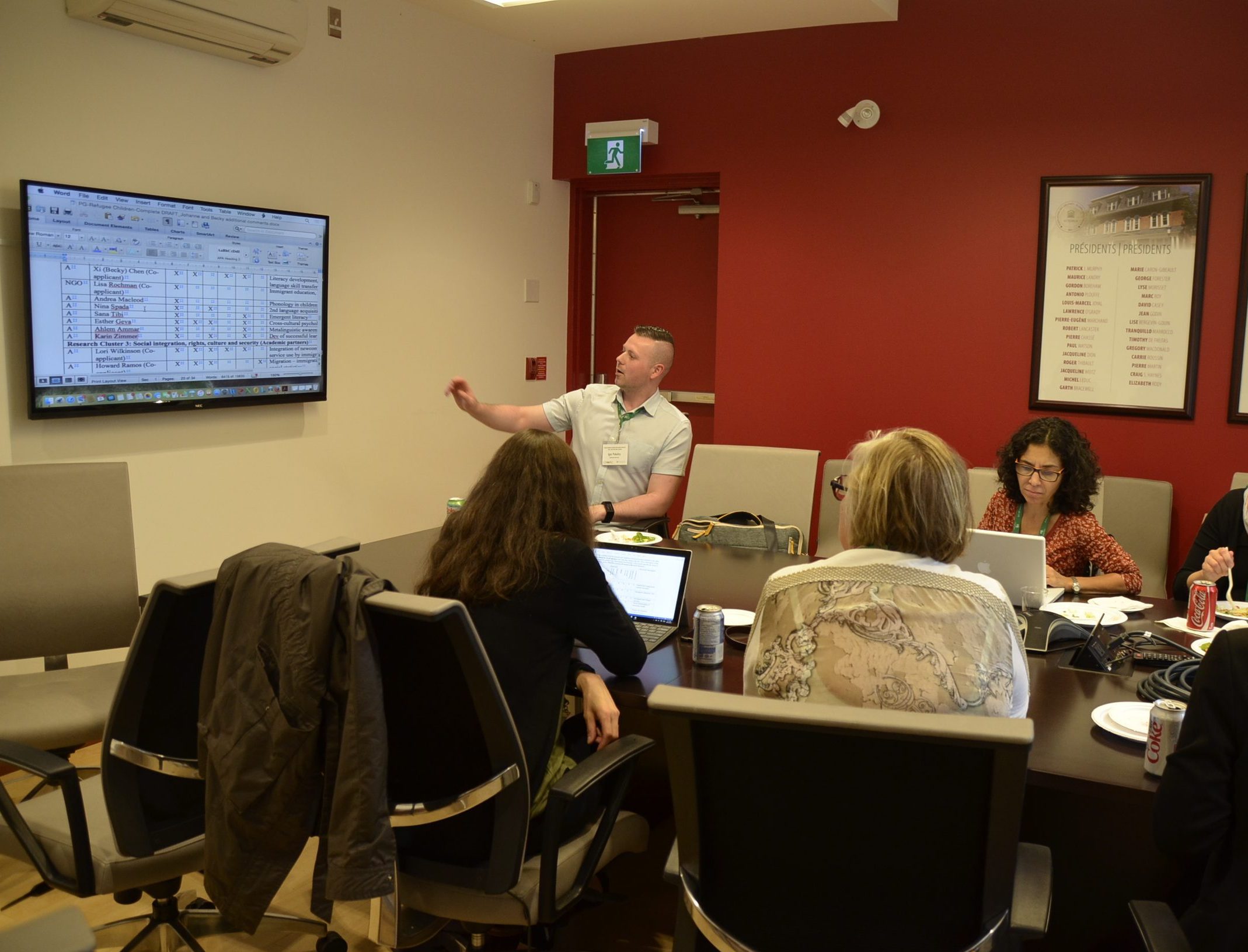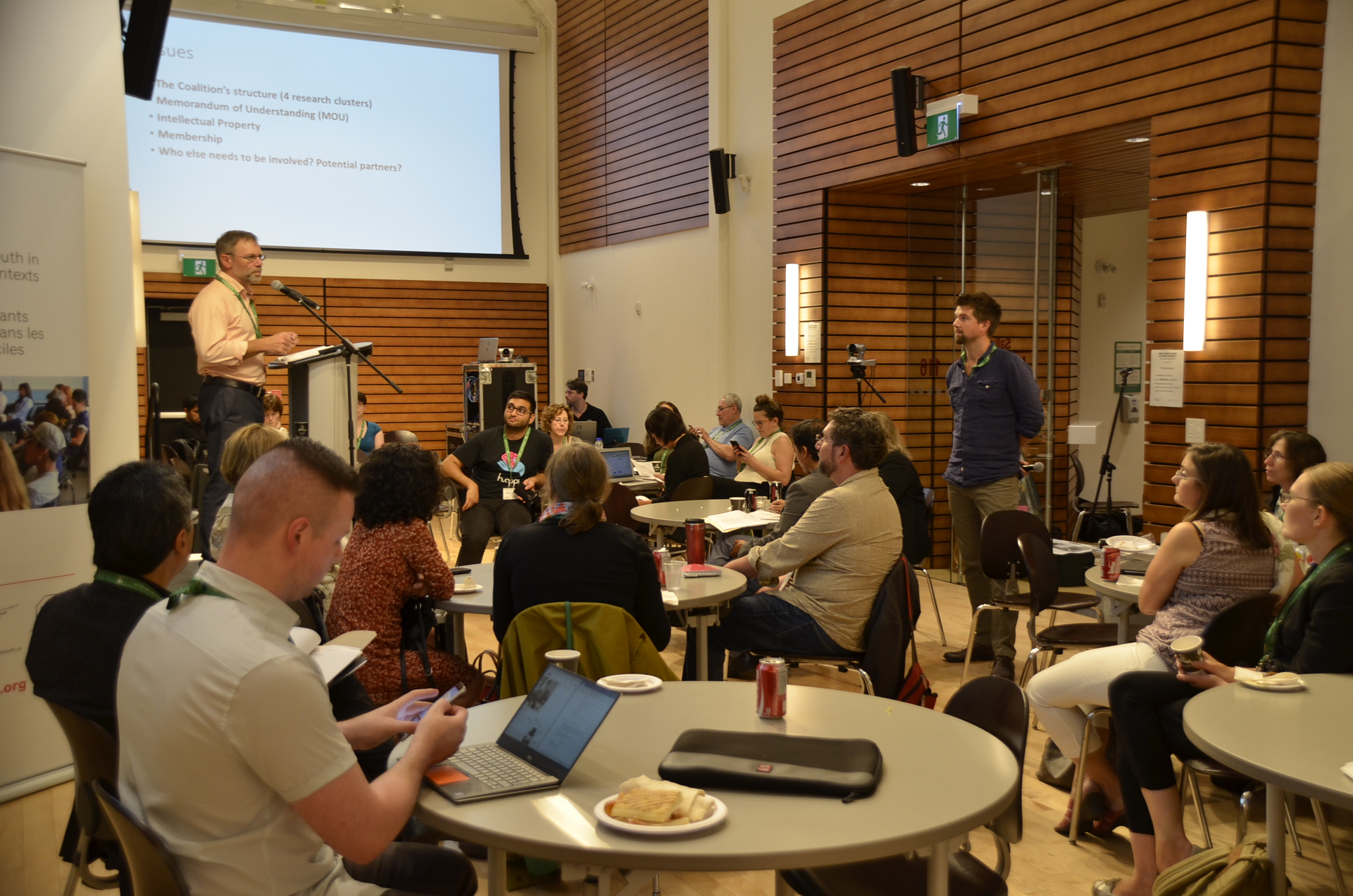Current Research
To date the Coalition has: (1) advocated for funding that responds rapidly to the resettlement challenges children experience; (2) begun to gather data from multiple provincial and federal sources and aggregate that data into accessible formats; (3) created international partnerships between the Coalition and national research teams in countries like Germany and Australia; (4) initiated knowledge mobilization activities with a focus on child refugees; (5) trained students and junior scholars to work across disciplinary silos; and (6) planned and are implementing research that matches the complexity of the social and physical ecologies in which child refugees and their families live.

In January 2016, Dalhousie University provided financial support to bring together 24 members of the Coalition representing 11 of the U15 research intensive universities in Canada at a meeting in Ottawa. Our initial task was to develop a list of indicators of successful child migration and suggest research designs to track outcomes in language and learning, social integration, and wellbeing for Syrian refugee children, youth and families. The results of this workshop have become the basis for the Coalition’s work with IRCC and Statistics Canada and positioned the Coalition as a network capable of drawing together multidisciplinary expertise related to child refugees from across Canada. Coalition members met again in March 2016, at a knowledge mobilization workshop called Wisdom2Action where educators, service providers, government representatives and researchers from across Canada gathered in Toronto to identify and exchange promising practices for resettling child refugees. That meeting, hosted by the Children and Youth in Challenging Contexts (CYCC) Network, a Network of Centres of Excellence, and with support from Public Safety Canada, was the catalyst for a national community of practice developing an evidence base for which interventions and programs work best.
In April, building on our momentum, two of the Coalition leads met with the Minister of Immigration, Refugees and Citizenship, the Hon. John McCallum. Minister McCallum expressed his support for the Coalition’s initiative and the links being developed with our international partners. Subsequent meetings between Coalition leads and the Hon. Scott Brison, President of the Treasury Board, and numerous senior officials at Statistics Canada, IRCC and provincial departments concerned with refugees, as well as presentations to government committees such as the Parliamentary Standing Committee on Citizenship and Immigration, have helped to put research with child refugees on the national agenda.
The power of the Coalition was further in evidence in late June and early September when we hosted, in partnership with the CYCC Network (which currently provides the Coalition with logistical support), a series of meetings with our German counterparts. The Leibniz Education Research Network (LERN) had two meetings funded by the German Federal Ministry of Education and Research (BMBF). The first was hosted by the Canadian Embassy in Berlin in June 2016 and the second was held in Ottawa in September 2016. Funding to support these meetings and the participation of Coalition members has come from SSHRC, 5 Canadian universities, the Canadian Embassy in Berlin, IRCC, and the BMBF. At these meetings, members of the CYRRC and German academics developed joint research initiatives, including a set of indicators for two national cohort studies in Germany and an anticipated study in Canada. Though the profile of each country’s refugee population is different, both countries have a large number of young people at risk of social marginalization and other challenges related to language acquisition, trauma, and family stressors like unemployment.

